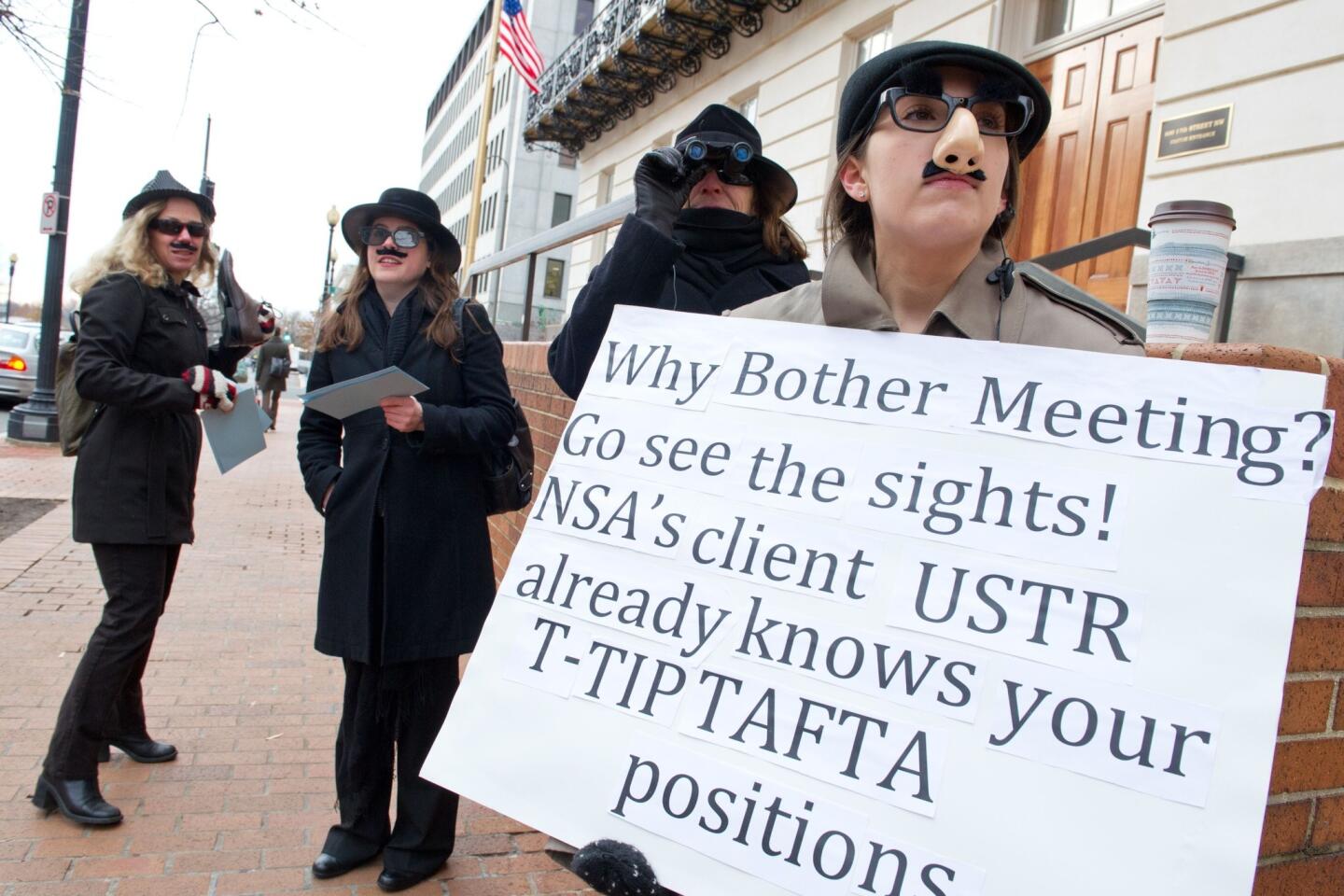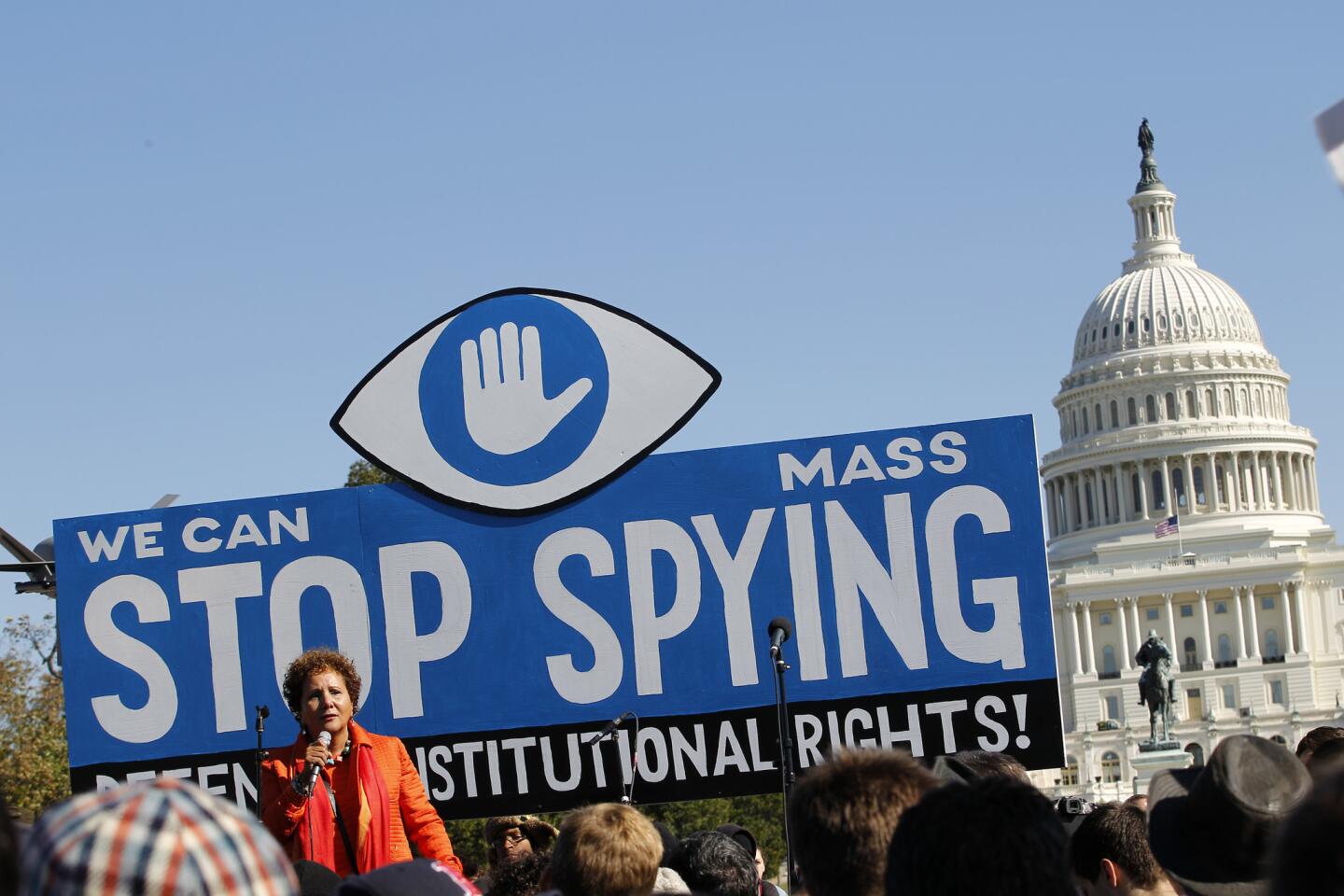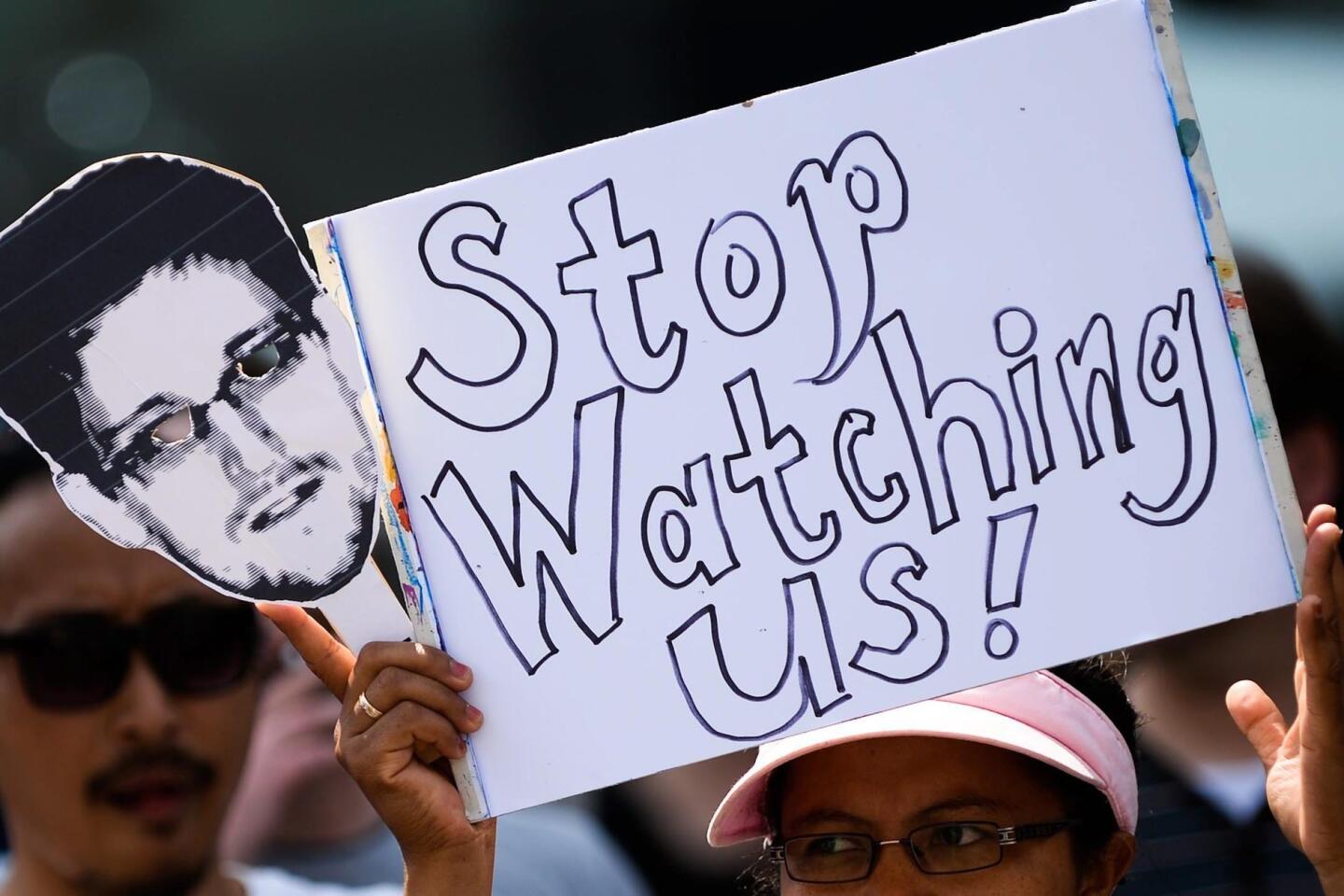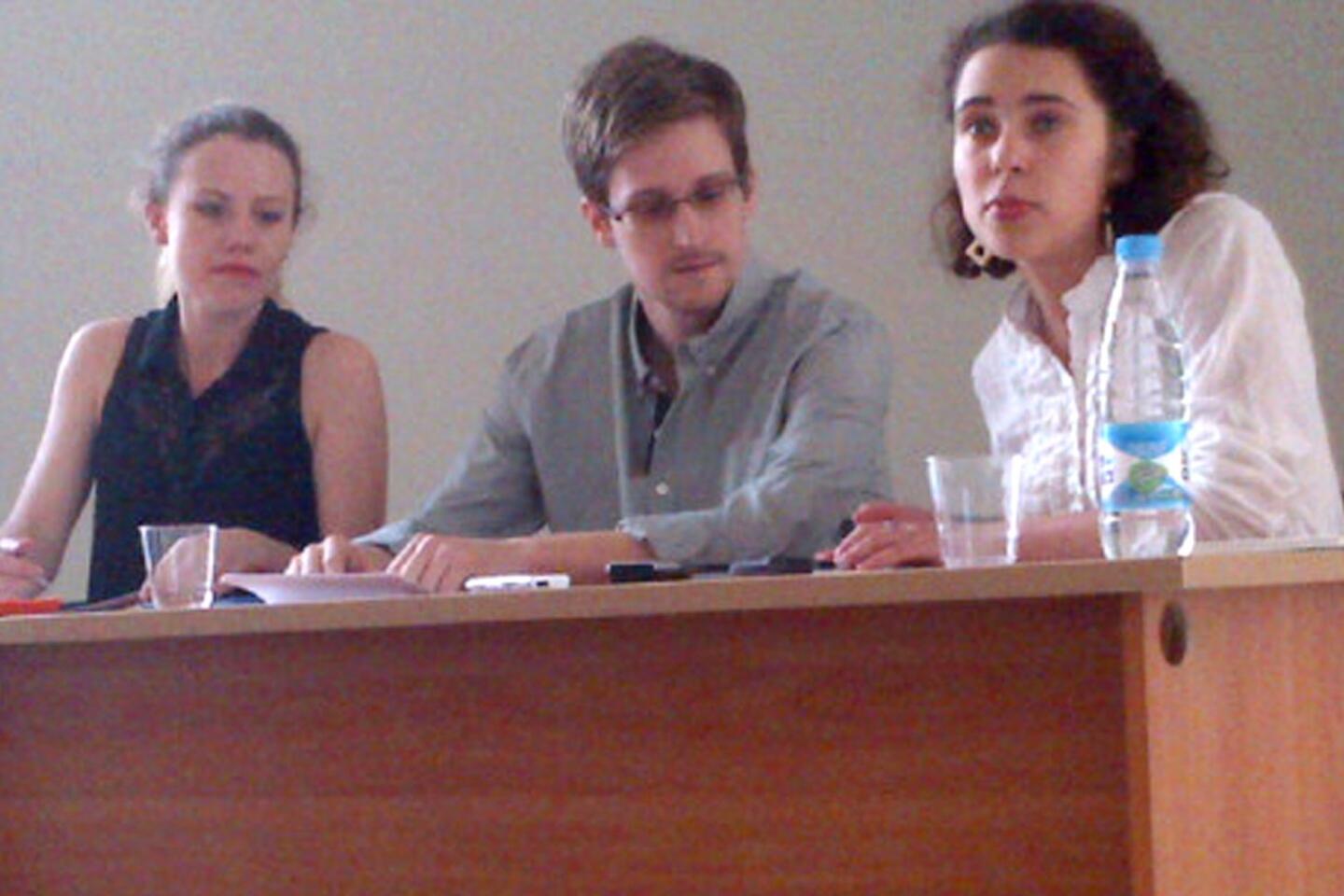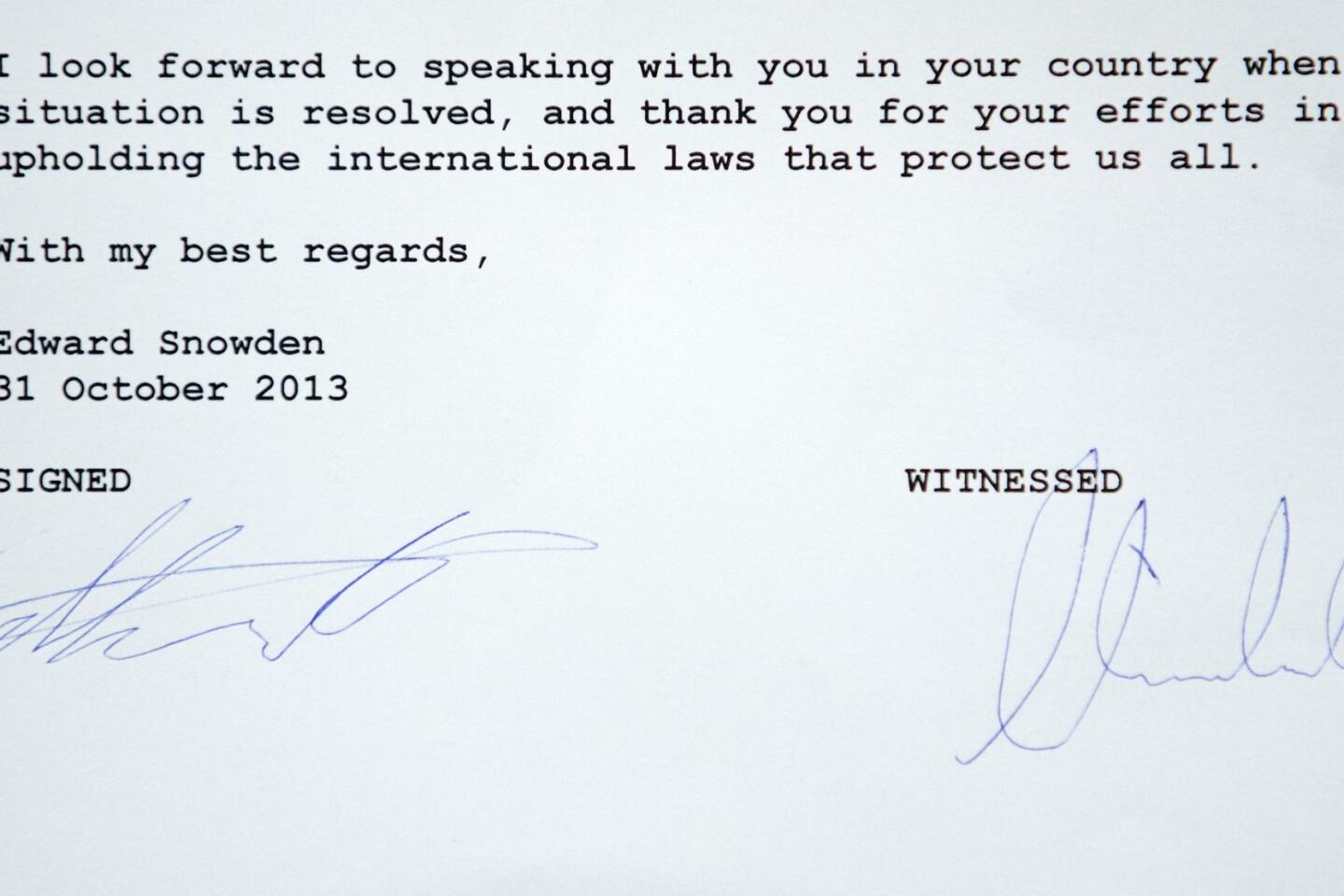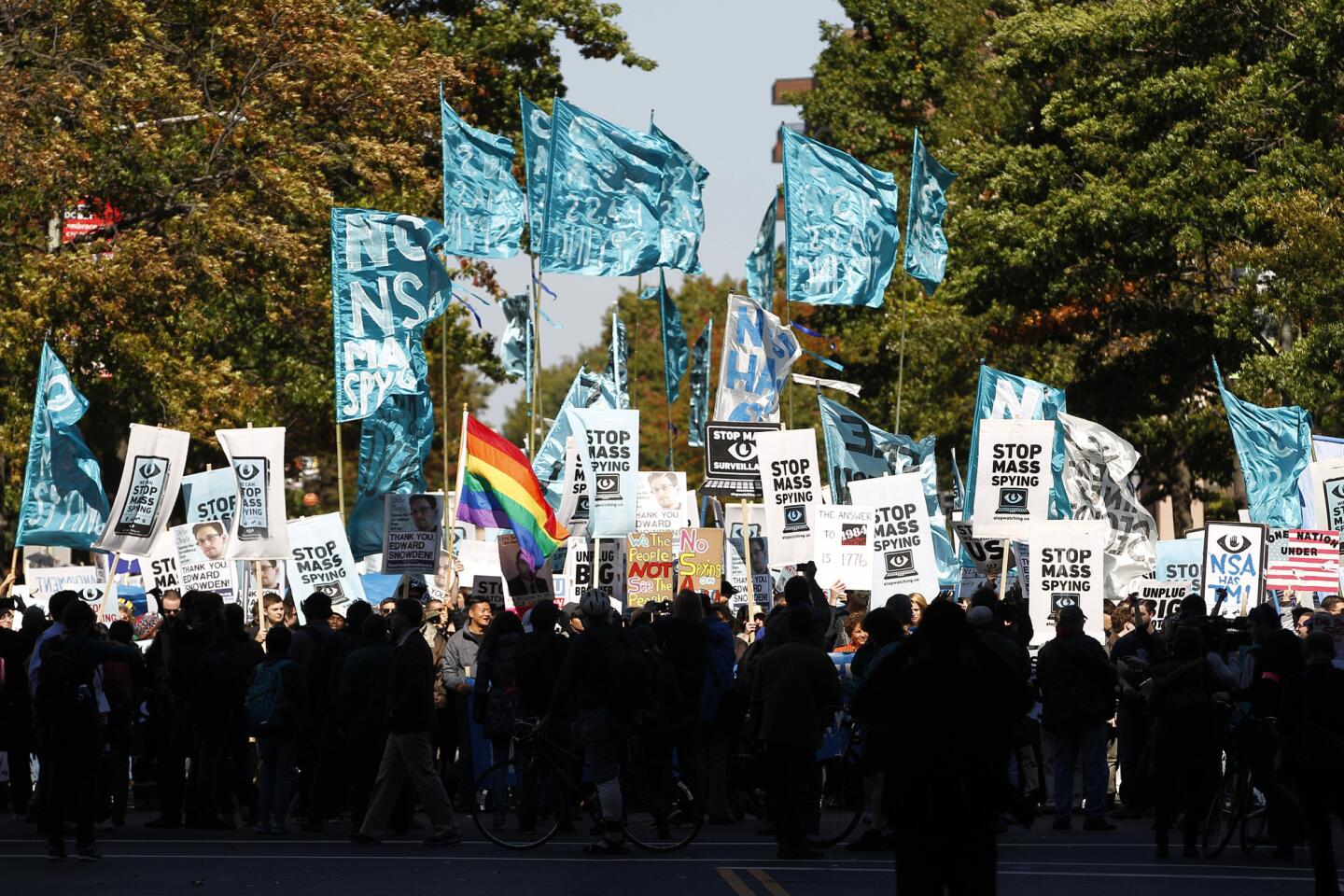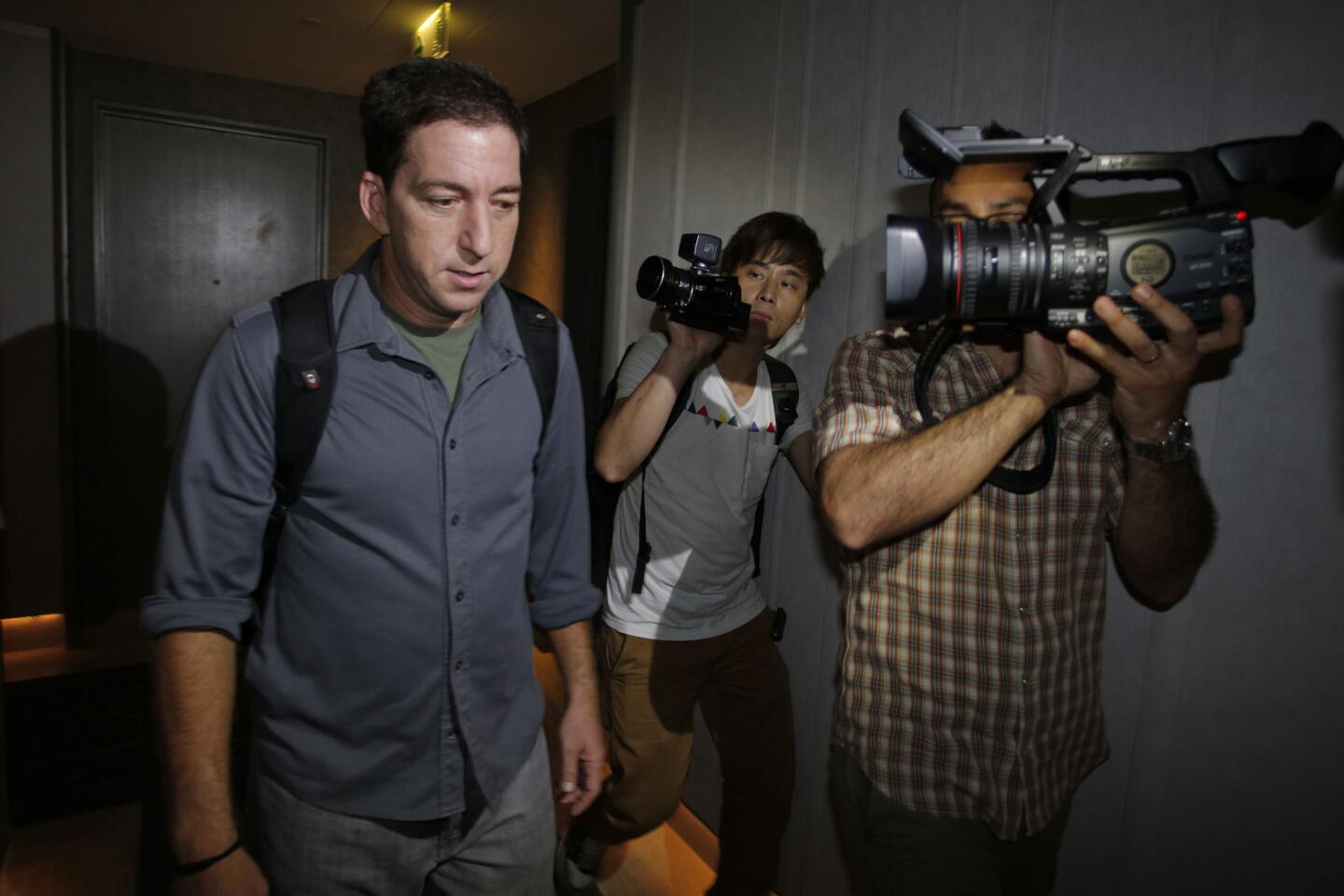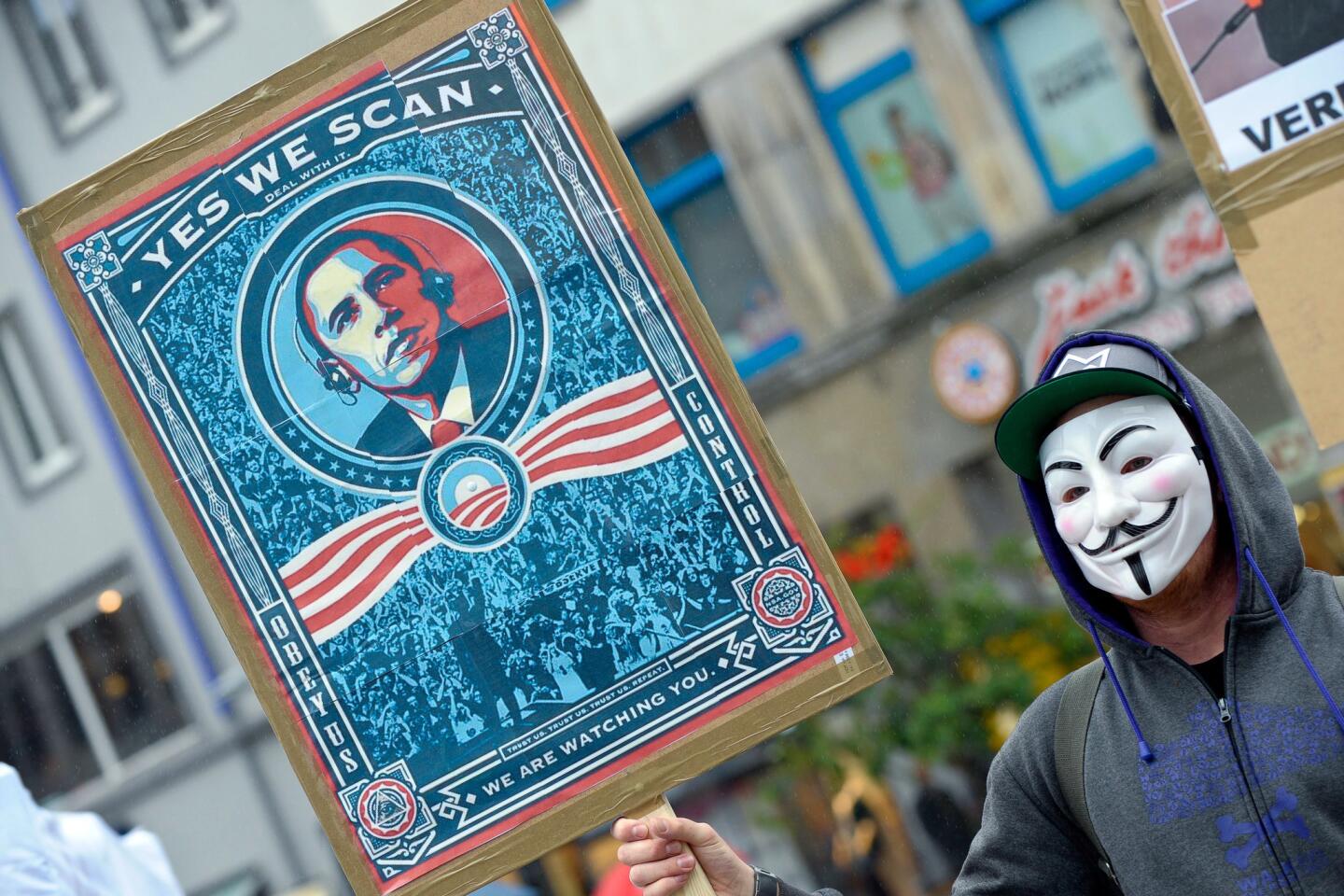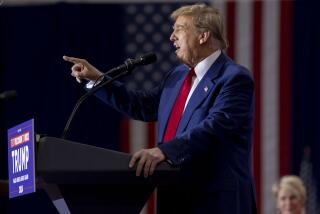Federal judge upholds NSA’s vast telephone data collection
The National Security Administration’s mass collection of telephone data does not violate the Constitution, a federal judge in New York ruled Friday, setting up a conflict within the federal courts and increasing the likelihood that the Supreme Court eventually will have to resolve the issue.
In a ringing opinion that referred to the NSA’s surveillance programs as part of the “the government’s counterpunch” against the Sept. 11, 2001, attacks, U.S. District Court Judge William H. Pauley justified the collection of “metadata” as a necessary response to terrorism. The 9/11 attacks might have been prevented had such a mass collection of telephone data been in place at the time, he wrote.
“The government learned from its mistake and adapted to confront a new enemy, a terror network capable of orchestrating attacks across the world,” he said.
The decision by Pauley, who was appointed to the federal bench by President Clinton, contrasts sharply in both conclusion and tone with a decision issued just a week earlier by U.S. District Court Judge Richard J. Leon in Washington, who declared the NSA’s program unconstitutional.
Both rulings are expected to be appealed, Leon’s to the D.C. Circuit and Pauley’s to the New York-based 2nd Circuit. Ultimately, whichever side loses in the appeals courts likely will ask the Supreme Court to review the case.
Leon, who was appointed by President George W. Bush, said he could not imagine a more “indiscriminate and arbitrary invasion” of the 4th Amendment’s protection from unreasonable searches. He called the NSA’s vast database of telephone call records an almost “Orwellian technology.”
Pauley, by contrast, said the NSA’s collection did not violate any constitutional rights. Relying on a 1979 Supreme Court precedent that Leon had brushed aside as outdated, Pauley said that the records the NSA has collected – information such as which numbers are called from which other numbers and how long the calls last – have no protection under the Constitution’s guarantee against unreasonable searches.
“When a person voluntarily conveys information to a third party” such as a telephone company, “he forfeits his right to privacy in the information,” he wrote.
Nor does the huge scale of the NSA’s activities change that analysis, he said.
TIMELINE: The year in politics
“The collection of breathtaking amounts of information unprotected by the 4th Amendment does not transform that sweep into a Fourth Amendment” violation, he said.
And, while Leon expressed deep skepticism about how much benefit the government gets from its database, Pauley accepted the government’s argument that it’s vital.
“The collection is broad, but the scope of counterterrorism investigations is unprecedented,” he wrote.
The decision comes as President Obama weighs whether to impose new restrictions on the NSA’s activities. Last week a presidential task force urged Obama to adopt new limits on the agency. Obama said he was taking the recommendations seriously and would announce a decision on them in January.
The latest ruling is certain to bolster the arguments of the NSA’s allies. “We are pleased the court found the NSA’s bulk telephony metadata collection program to be lawful,” Justice Department spokesman Peter Carr said in a statement.
The ACLU, which brought the case, issued a statement expressing disappointment and promising to appeal.
The decision “misinterprets the relevant statutes, understates the privacy implications of the government’s surveillance and misapplies a narrow and outdated precedent to read away core constitutional protections,” said Jameel Jaffer, ACLU deputy legal director.
“As another federal judge and the president’s own review group concluded last week, the National Security Agency’s bulk collection of telephony data constitutes a serious invasion of Americans’ privacy.”
Follow Politics Now on Twitter and Facebook
More to Read
Start your day right
Sign up for Essential California for news, features and recommendations from the L.A. Times and beyond in your inbox six days a week.
You may occasionally receive promotional content from the Los Angeles Times.



